Regular maintenance and repairs as part of HVAC services can save costs and energy use while prolonging HVAC system lifespan.
Keeping your heating and cooling system running efficiently and operating normally is key for every business.
No matter your industry type, you need a building and facility that’s properly regulated in terms of temperature, airflow, comfort level, and air quality.
Once you have a great HVAC system installed, your attention should turn to commercial HVAC service.
Regular maintenance for even high-quality HVAC equipment is necessary to keep units running efficiently and to prolong its life.
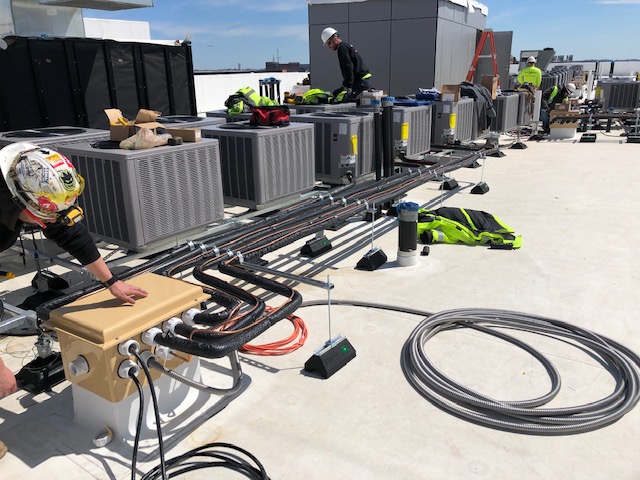
Keeping Your HVAC Unit Running Effectively
Cooling systems and heating systems shouldn’t be at the back of your mind even when newly installed. Performing regular maintenance and making repairs quickly provides many benefits beyond just proper temperature and airflow regulation for your facility’s workers.
1. Improves energy efficiency.
Over time, your unit’s efficiency may decrease with regular wear and tear of its mechanical parts. Fans and blowers and other components need to be regularly inspected to make sure they’re running smoothly.
2. Better for the environment.
A well-running HVAC system is better for the environment because it provides warm and cool air and moves air as efficiently as possible. All mechanical actions require energy, so smoother-running parts use less energy.
3. Saves money.
Decreased energy use also means less money spent on energy. Better HVAC performance is a win-win.
4. Reduces health problems.
HVAC systems also circulate air and deliver fresh outdoor air. Indoor air quality relies on air circulation and properly performing ventilation systems.
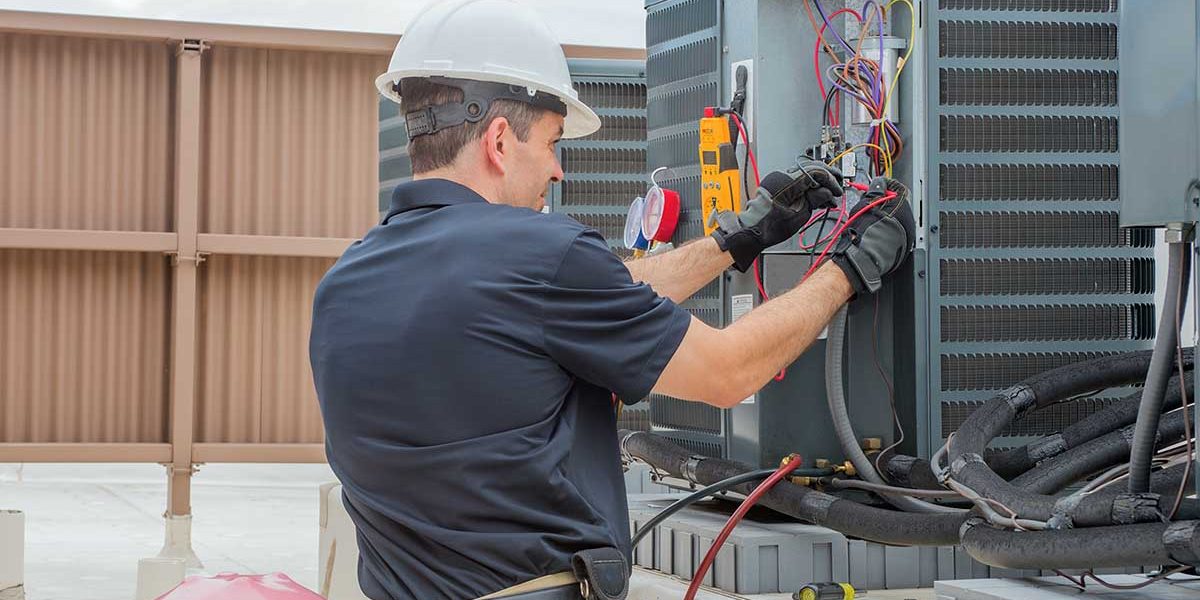
5. Increases employee satisfaction and performance.
Employees can’t perform well if they’re not comfortable. To work efficiently, comfortable temperatures and airflow are crucial.
Regular Maintenance for Your HVAC System
Commercial HVAC service comes down to repairs and maintenance, the latter being an important part of prolonging lifespan and preventing problems with your unit. So, what exactly comprises maintenance? Here are some examples.
- Changing the air filter three or four times per year to halt any contaminants, dust, and dirt from getting into your system.
- Checking the integrity of belts and pulleys to make sure pieces don’t give out.
- Cleaning condensate lines and evaporator coils of moisture and dust that can decrease efficiency.
- Emptying and cleaning drain pains to prevent mold build up.
- Tightening any loose electrical connections.
When should HVAC services and maintenance be completed?
The best time to schedule maintenance for your heating and cooling system is before you need it most. So, schedule heating system service in the early fall or later summer and air conditioning service in the spring.
Commercial HVAC Repairs
HVAC repairs are needed when a component or unit has stopped working either partially or entirely. Non-extensive repairs can include:
- A malfunctioning thermostat needing recalibration
- A blown fuse or tripped breaker from blocked airflow
- Clogged air conditioning drain
- Compressor issues from lack of refrigerant
For many of these issues, repair or refurbishing a unit may suffice. It is recommended that a qualified HVAC technician provide any diagnostic and repair services for your HVAC unit. Doing so helps to ensure that repairs can be made correctly and safely.
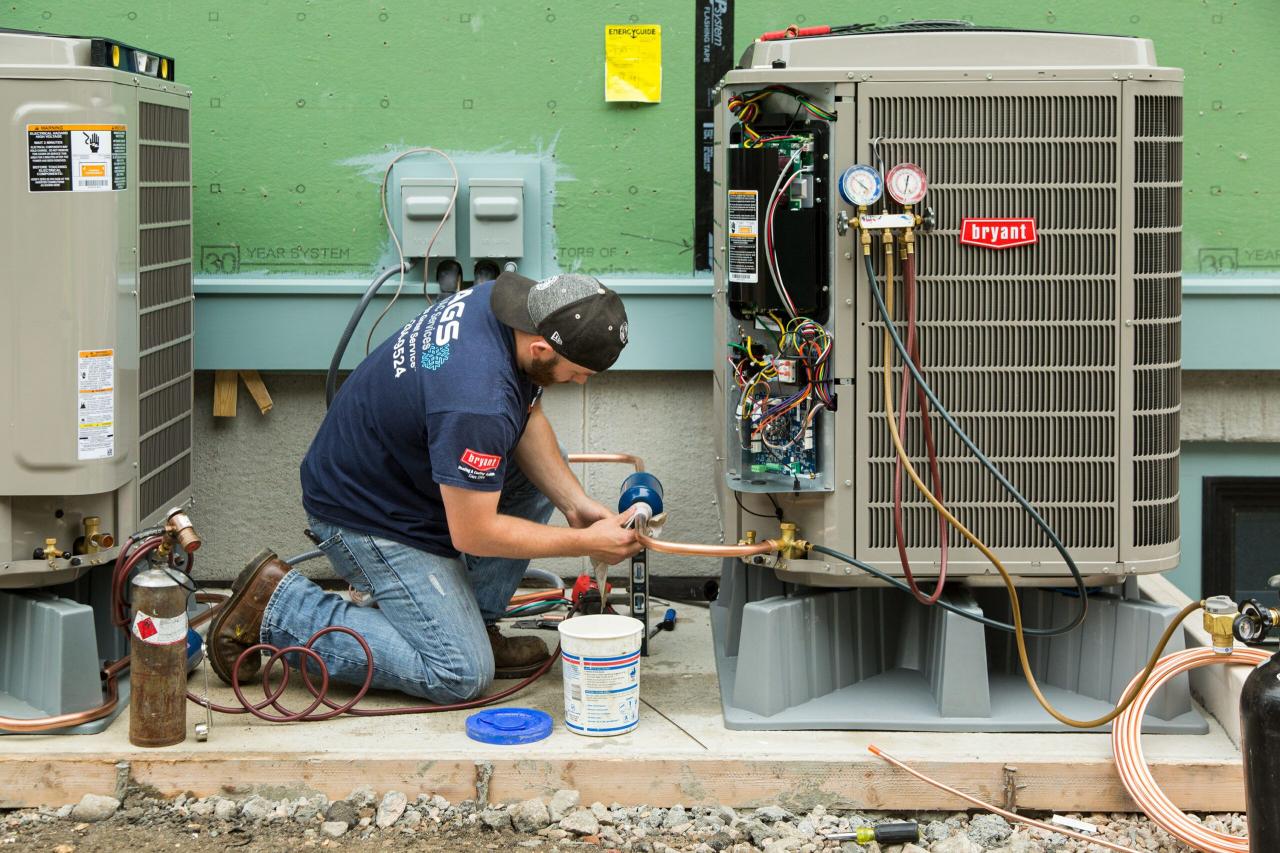
When should non-urgent repairs be performed?
Your commercial service should include regular HVAC maintenance, which can help spot and prevent non-urgent repairs. Performing non-urgent work in the off-season is recommended.
Does my HVAC equipment type affect maintenance or repair rate?
Certain types of HVAC equipment can last longer than other types. A furnace may last 15 to 25 years while an air conditioning unit could last from 12 to 15 years, on average. In any event, preventative maintenance is a key determinant in your equipment’s lifespan. Some equipment, like thermostats, is commonly changed or upgraded as technology evolves but before it wears out.
Commercial HVAC Service Pricing Models
Companies have different HVAC services and related pricing models. Some provide services on an as-needed basis. Others offer a service plan that includes regular maintenance and also provides repairs for a flat fee, some service plans are all inclusive which include maintenance, repairs and emergency calls
What service plans are available for regular maintenance and repairs?
Commercial HVAC service plans can minimize HVAC failures by providing regular maintenance, diagnostics, and repairs. Such service plans typically charge a monthly or annual fee and can help customers to reduce energy use and minimize costly, unforeseen repairs. Such plans typically cover labor and maintenance materials. United Mechanical offers a Proactive Preventative Maintenance Program for regular service needs that also covers repair and/or replacement of major components and parts as well as emergency service calls.
Does my HVAC system type affect costs for repairs and maintenance?
Certain types and components of HVAC equipment can require more time or labor to service than others. For example, servicing a large cooling tower can require added labor or time compared to servicing a single small furnace. The number of units in a system can also affect costs, as extensive, multi-unit heating and cooling systems can take longer to service.
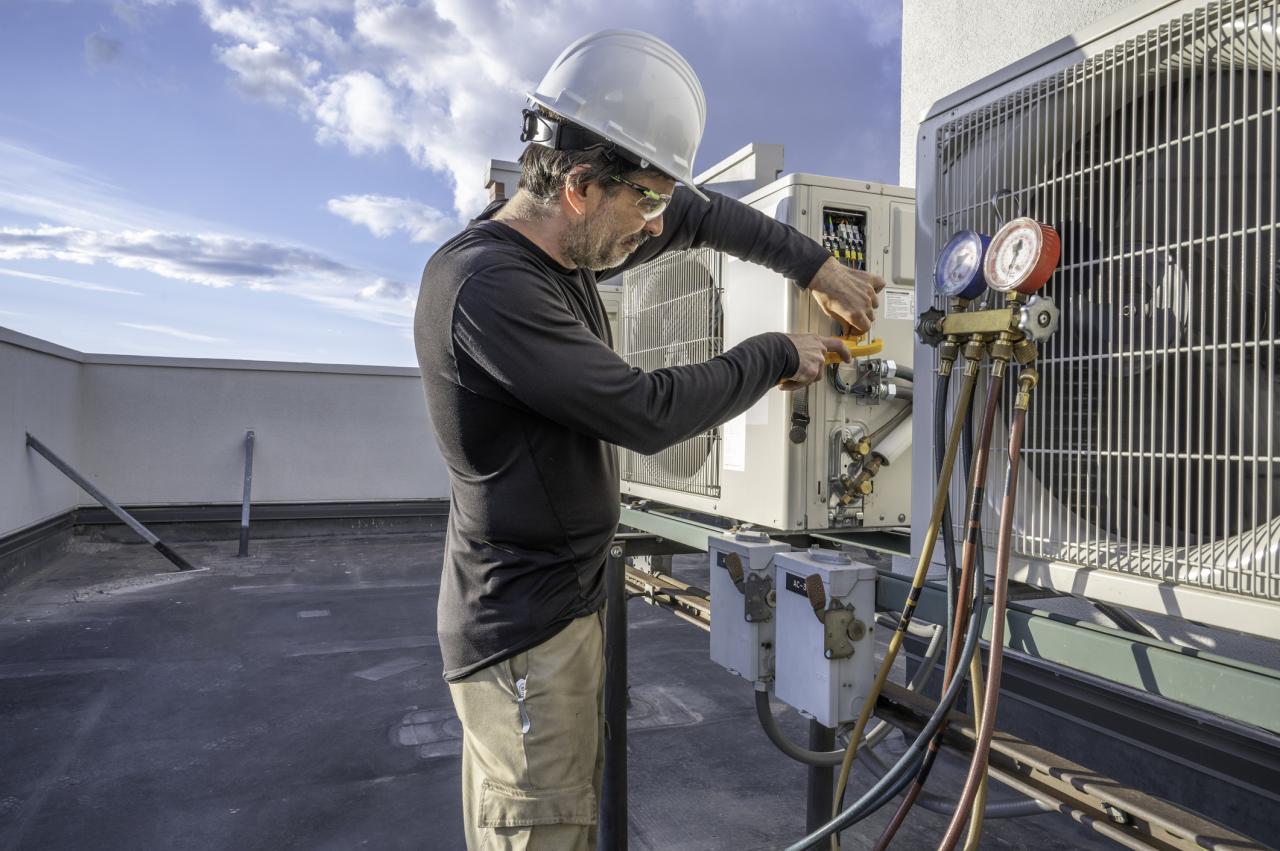
The Best Commercial HVAC Service with United Mechanical
United Mechanical provides reliable and high-quality commercial HVAC service to numerous businesses and facilities in Oklahoma. As a group of commercial mechanical contractors, United Mechanical offers cost-effective solutions for its customers and their building needs.
As a commercial HVAC service provider and contractor, we know of the importance of regular maintenance and repairs for your commercial HVAC system. That’s why we’re glad to offer premium services and to share what we’ve learned to keep your heating and cooling system running smoothly for as long as possible.



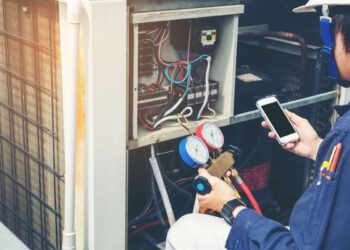
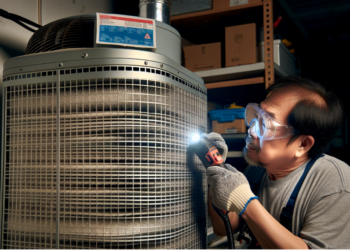
















Discussion about this post